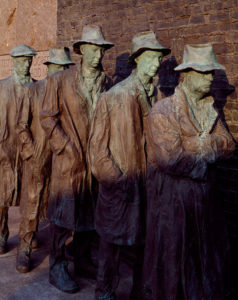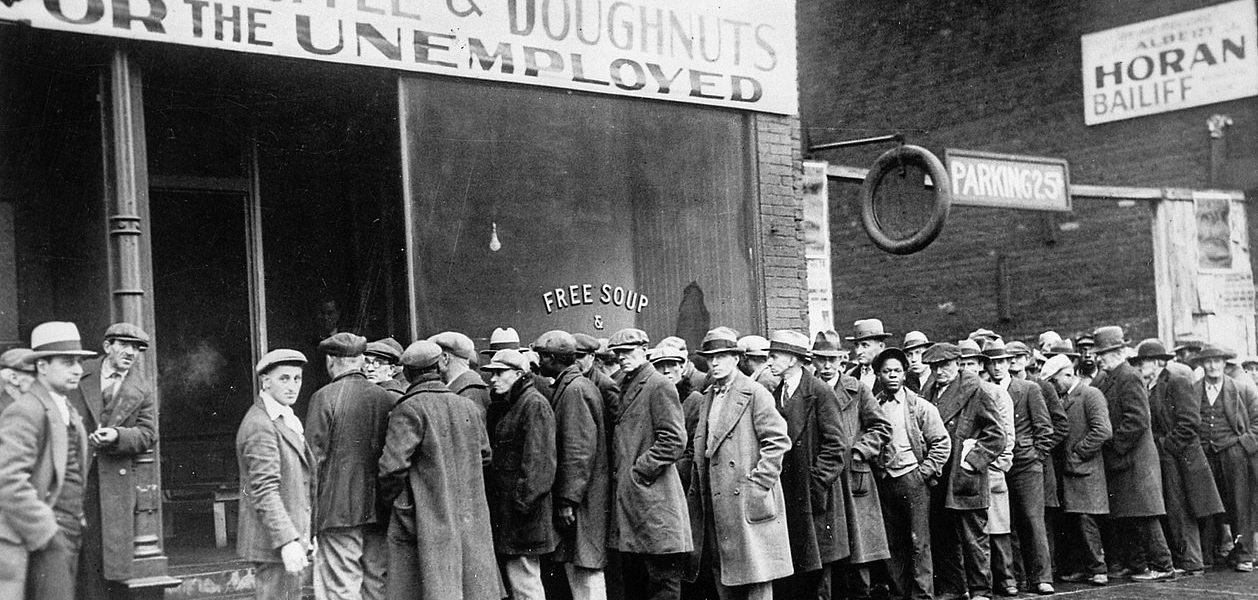Some periods of our recent and not so recent history are marked by disasters. The most recent one is actually an ongoing pandemic. Some disasters are forgotten or have fallen down the list of disasters. Some are to this day remembered as a warning to humanity, like the Chernobyl explosion. Considering that some catastrophes are economic in nature, they may get overlooked. Following is an overview of the Great Depression, what caused it and should we fear it again.

The Great Depression – What It is and Why?
The Great Depression is not a lot of people sitting at home sad that they cannot go out and party because they must isolate. The Great Depression was an economic depression that took place in the 1930s, across the world. Most people associate it with the United States, because that is where it started. On October 29 1929, the stock market crashed. The date was known as Black Tuesday. The following years, up to 1932, the world gross domestic product fell by 15%, a record high. Some countries recovered on time while others, they failed to recover until the end of World War II.
Why did this happen?
The Common Explanation
There are very many theories by various economists of varying beliefs as to why the Great Depression happened. The common consensus is that it happened because of many debts and deflation. Many factors contributed to the depression, distress selling, debt liquidation, fall in profit, reductions in trade, employment and output, money hoarding, fall in the worth of a business, and psychological reasons, such as a loss of confidence and pessimism.
In short, this happened because of multiple reasons, all contributing to the loss of the economy, globally.

How Can We Prevent Depressions?
Increased trade and spending, not to mention other sustainable ways of increasing your country’s economy. Having people spending money inside the country is one of the best ways of making a depression’s effect smaller, not to mention cutting taxes and lowering prices.
The Great Depression ended for most countries with World War II, because munitions, vehicles and everything else war-related, had to be made. Most people found jobs in factories, or were drafted as soldiers or nurses, in the case of women. Given that lots of money was spent during that period of 1939 until 1945, the Depression ended abruptly for most of the world.
A Lesson for the Future
Some systems are destined to fail when economies worldwide start failing, like the gold standard system. Isolated countries at the time, like Spain and the Soviet Union weren’t affected by the Depression.
Trade is helpful, but taking care of the people is essential. Countries today, with all their economic knowledge, can take care of their citizens better, at least from economic disasters.





